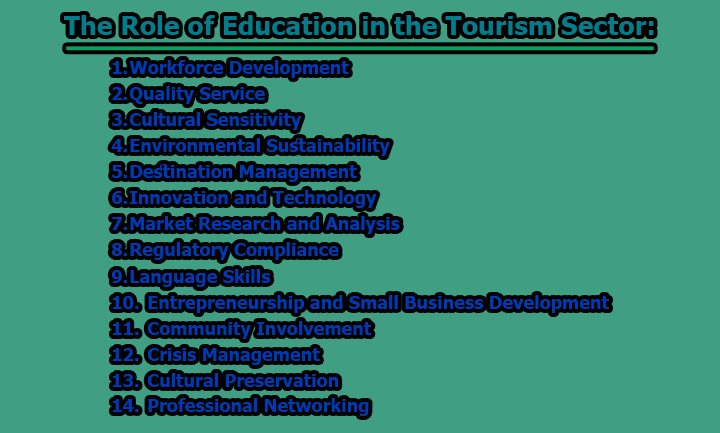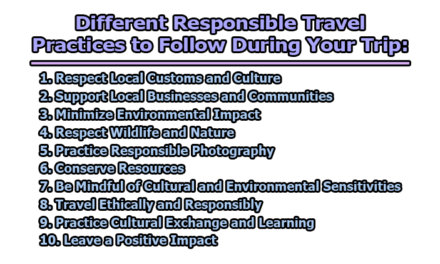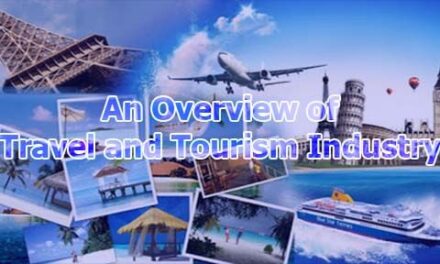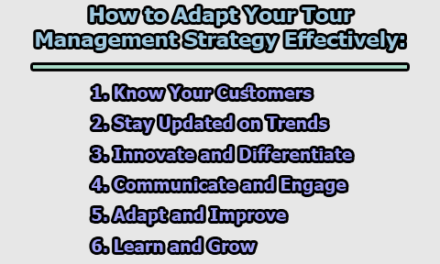The Role of Education in the Tourism Sector:
The role of education in the tourism sector is crucial in shaping the industry’s growth, sustainability, and overall quality. Tourism is a multifaceted industry that encompasses various aspects such as hospitality, travel, cultural exchange, and adventure. A well-educated and skilled workforce is vital for ensuring the industry’s success and positive impact on both the economy and the destinations themselves. Let’s explore the role of education in the tourism sector:
1. Workforce Development: Education in the tourism sector is foundational for developing a skilled workforce. It not only imparts theoretical knowledge but also offers practical training to excel in various roles. For example, aspiring tour guides learn historical, cultural, and ecological facts, while hotel management students gain insights into guest services, operations, and marketing. Travel agents are equipped with skills to plan itineraries, handle bookings, and provide travel advice. Event planners learn to manage events effectively, from weddings to corporate meetings. In essence, education molds individuals into competent professionals ready to meet the diverse demands of the industry.
2. Quality Service: Well-trained professionals are the backbone of quality service in the tourism sector. Education instills not just technical skills but also customer service excellence. Professionals learn the art of guest engagement, anticipating needs, and providing personalized experiences. This is crucial because tourism heavily relies on customer satisfaction and positive word-of-mouth. Educated individuals understand the significance of creating memorable experiences, ensuring tourists return and recommend their services to others.
3. Cultural Sensitivity: Tourism often involves interactions with people from various cultural backgrounds. Education goes beyond mere language skills; it fosters cultural sensitivity and awareness. Professionals are taught to respect and appreciate the values, customs, and beliefs of visitors and host communities. This not only enhances the quality of interactions but also reduces cultural misunderstandings and conflicts, contributing to a harmonious tourism experience for all.
4. Environmental Sustainability: Sustainable tourism is a growing trend, and educated professionals are pivotal in embracing and promoting eco-friendly practices. Education equips individuals with knowledge about environmental conservation and responsible tourism. They learn how to minimize the industry’s ecological footprint, from managing waste and conserving water to adopting renewable energy sources. In this way, they contribute to reducing the negative impact of tourism on the environment, and preserving natural beauty for future generations.
5. Destination Management: Effective destination management is crucial for the long-term viability of a location as a tourist destination. Education imparts the skills and knowledge needed to manage and promote destinations effectively. This includes aspects like infrastructure development, marketing strategies, cultural preservation, and sustainable practices, all of which work together to create an attractive, well-managed destination that can thrive in the competitive global tourism industry.
6. Innovation and Technology: The tourism industry is highly dynamic and constantly evolving, with technological advancements playing a significant role. Education ensures that professionals are well-prepared to adapt to new technologies, such as mobile apps, virtual reality, and data analytics. They learn how to leverage these tools to enhance the visitor experience and streamline operational processes, ultimately making tourism businesses more efficient and competitive.
7. Market Research and Analysis: In the age of data-driven decision-making, education provides the tools and knowledge for market research and analysis. Tourism professionals are trained to gather and interpret data to understand the demands of tourists, identify market trends, and assess competitive forces. This insight is invaluable for tailoring services and marketing efforts to meet the evolving needs of the industry.
8. Regulatory Compliance: Compliance with regulations and standards is paramount in the tourism sector, spanning safety, health, and visa requirements. Education ensures that professionals are not only aware of these regulations but also understand their implications. By adhering to these standards, individuals can reduce potential risks and legal issues, ensuring the safety and security of both tourists and the industry itself.
9. Language Skills: Multilingualism is highly advantageous in the tourism sector. Education provides individuals with the opportunity to learn additional languages, making it easier to communicate with tourists from around the world. Being able to speak the language of visitors enhances the quality of interactions, improves customer service, and opens doors to wider cultural understanding.
10. Entrepreneurship and Small Business Development: Education empowers individuals to become entrepreneurs in the tourism sector. This is especially significant in fostering innovation and diversifying the industry. With the knowledge and skills gained through education, entrepreneurs can create new tourism products and services, expand the market, and potentially contribute to economic growth in their regions.
11. Community Involvement: Education underscores the importance of engaging and involving local communities in tourism development. This fosters a sense of ownership and shared responsibility for the industry’s success. When local communities are active participants in tourism, it can lead to positive relationships, cultural exchange, and community support. This not only benefits the industry but also enhances the overall tourism experience.
12. Crisis Management: Preparedness for crises, whether natural disasters, pandemics, or political instability, is essential in the tourism sector. Education equips professionals with the knowledge and skills to handle these situations effectively. They learn crisis communication, risk assessment, and emergency response protocols, ensuring the safety of tourists and the industry’s resilience in challenging times.
13. Cultural Preservation: Education emphasizes the importance of preserving the cultural and historical heritage of destinations. This knowledge ensures that tourism activities do not harm or dilute these valuable assets. Instead, tourism professionals learn to promote cultural preservation and respect, contributing to the sustainable development of destinations.
14. Professional Networking: Educational institutions often provide opportunities for professional networking. These connections are invaluable in the tourism sector, where collaboration and partnerships are common. Building a network can lead to collaborations, business opportunities, and access to resources that can contribute to the growth and success of tourism businesses and destinations.
In conclusion, education is the cornerstone of excellence and sustainability in the tourism sector. It equips individuals with the skills and knowledge needed to provide high-quality services, contribute to responsible tourism practices, and adapt to the ever-evolving industry landscape. Furthermore, it plays a pivotal role in promoting economic growth and fostering positive relationships with local communities and visitors, ensuring the long-term success and positive impact of the tourism industry. Education empowers professionals to be not just service providers but also stewards of cultural heritage, guardians of the environment, and contributors to the well-being of the communities they serve.
References:
- Cohen, E. (2008). Tourism and Sustainability: New Tourism in the Third World. Routledge.
- European Commission, DG Enterprise. (2001). Improving training in order to upgrade skills in the tourism industry. Final report of Working Group B. Brussels: European Commission.
- Haven-Tang, C., Jones, E. (2006). Human resource management in tourism businesses. In The Business of Tourism Management. Pearson Education.
- Junggeburt, J.H.F. et al. (2004). Training and development under construction. Hospitality and the changing environment. The Hague: Hotelschool the Hague.
- Sharpley, R., & Telfer, D. J. (2008). Tourism and development: Concepts and issues. Channel View Publications.

Library Lecturer at Nurul Amin Degree College










